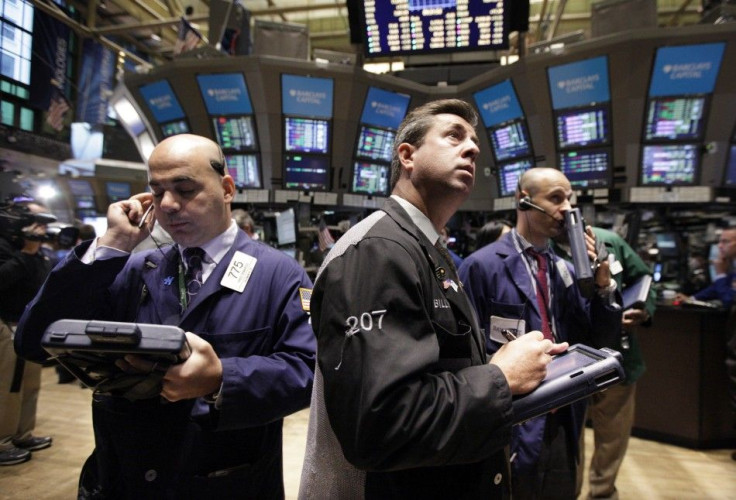10 Reasons Why U.S. Stocks Closed Quarter on Sour Note

U.S. stocks concluded the third quarter on a bad note.
On Friday, the Dow Jones Industrial Average declined 240.60 points, or 2.16 percent, to close at 10,913.38. The S&P 500 index dropped 28.98 points, or 2.50 percent, to end at 1,131.42. The Nasdaq Composite fell 65.36 points, or 2.63 percent, to finish at 2,415.40.
For the quarter, the Dow plunged 1,500.96 points, or 12.09 percent, its worst performance since the first quarter of 2009.
Equity markets performed poorly because investors were scared and rushed into safe havens such as U.S. Treasurys. They were scared because the global economy looks increasingly shaky.
Some analysts, including Craig Ferguson of Antipodean Capital Management, believe the current risk-asset liquidation move alone may take the U.S. stock market down another 10 to 15 percent from current levels.
What the market will do from there -- rally, fall further, or trade sideways -- will depend on how the economy performs going forward.
Westpac Banking Corp., one of the big four Australian banks, listed the following 10 inconvenient truths about the global economy, which explain why the global economy performed poorly in the third quarter and cast a dark shadow on its future prospects.
1. The Organization for Economic Cooperation and Development (OECD) economies appear to be locked into a low-growth environment, where the downside risks to real activity dominate and there is a significant threat of a return to recession
2. Despite the obvious dynamism of the BRICs [Brazil, Russia, India, China] and other developing economies, and the greater policy latitude available to them, the emerging world is not immune to the OECD's woes and can only shoulder so much of the burden of driving the global business cycle.
3. For all their mercurial tendencies and occasional bouts of irrationality, the financial markets, and in particular the underlying trends in financial asset prices, more often than not deliver messages that policymakers should listen to.
4. Currently, global policymakers are facing something of a crisis of competence.
5. A more extensive Greek debt restructuring, the significant expansion and aggrandizement of the role of the European Financial Stability Facility (extending to large-scale capital injections into banks), and additional nonstandard policy support from the European Central Bank, could go some way toward stabilizing the Eurozone crisis (although such a strategy is not without significant risks and costs, especially for Germany and the ECB).
6. The precise dynamics of a Eurozone breakup are impossible to predict with any degree of certainty, but there is little doubt that it would prove economically catastrophic, and not just for Europe.
7. If the Eurozone fragments, the whole postwar collectivist/integrationist superstructure of Europe is at risk of collapse.
8. Although the immediate focus is on Europe, the U.S.'s underlying economic problems should not be underestimated or forgotten.
9. Countries seldom grow out of public-sector debt crises.
10. There will be no early escape from unconventional monetary policies.
E-mail Hao Li at hao.li@ibtimes.com.
For more useful global markets information, visit ibtimes.com/sections/global-markets.
© Copyright IBTimes 2024. All rights reserved.











